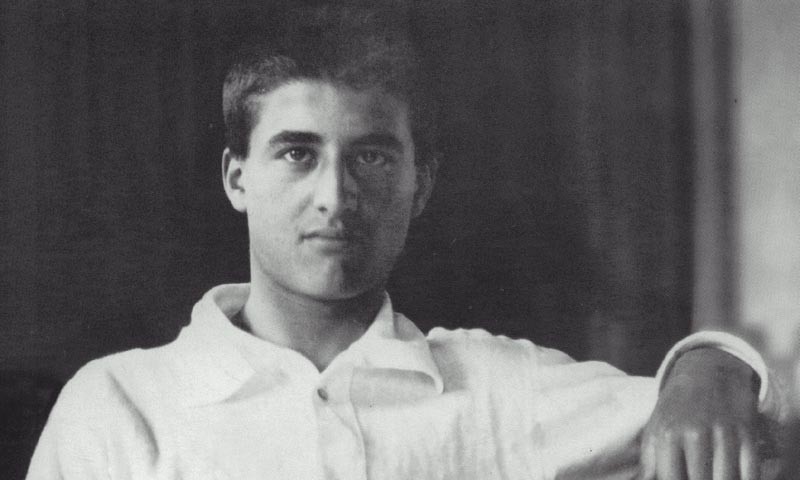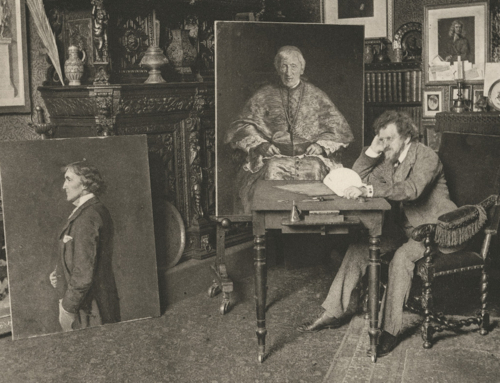Are saints just Catholic celebrities? In some ways they seem similar. Hollywood and the Vatican each place certain people in the public eye, even though they promote different kinds of people and values. Also, like celebrities many saints were born with incredible talent, or into wealthy families. Thomas Aquinas fulfills both categories—he was both exceptionally intelligent and a cousin of the Holy Roman Emperor.
The one thing, however, which sets saints apart is this: celebrities are recognized for excellence in the world, whereas saints are recognized for something from a totally different world.
Take, for instance, a stable and good-natured celebrity such as an athlete. One of the NBA’s biggest stars is Stephan Curry—humble, talented, Montessori-educated; he married his high school sweetheart, etc. On a natural level, he’s a great role model, and his motives seem pure, playing basketball “for the love of the game,” and not for the money or the applause or to prove himself to all his haters who doubted him. Still, he is recognized world-wide for something natural, i.e., his basketball skills. The same can be said for a great actor like Marlon Brando, a business mogul like Steve Jobs, or a musician like Billy Joel. They develop human skills far beyond the regular degree.
Saints are recognized for something different from natural abilities. They are named saints because they are holy. The word for holy in Latin, sanctus, literally means “other” or “different.” What is different with the saints is grace—a gift from God that far exceeds natural abilities. Curry may have a “better” shot than the rest, or a “higher” IQ for the game, but he doesn’t have something totally “different” than the rest of the league. Grace, however, is just that. It is by grace that God, who is unlike anything else in this world, dwells in our hearts. It is God’s initiative to give grace, and though we freely cooperate with it, He freely chooses according to his providential plan how much to give. God is much more than a “coach” in this respect, not just helping us to develop some talent we have, but giving us the “talent” in the first place and taking it as far as He likes.
Celebrities are made celebrities by the public. They have developed their skill or beauty or genius, and they achieve fame once the world recognizes it. Saints are the opposite. They are made in secret, with God as their only spectator, who alone sees directly into the soul, and who first loves that soul and gives Himself to it. Even when this indwelling expresses itself in exterior acts, such as martyrdom, the Church doesn’t declare people saints only for what they did, but always for something in them—friendship with God and heroic virtue.
Take another example: Pier Giorgio Frassati. He grew up during the early 1900s in an upper class family from Northern Italy. He was charismatic among his university friends, one of the leading jokers, and always leading trips to the mountains for hiking and skiing. Aside from that, though, he had a bad singing voice, had bad luck with a girlfriend, used to sleep in during the summer, and got poor grades in his engineering classes. Yet when he died of polio at the age of twenty-four, three thousand poor people showed up to his funeral to the shock of his family. He had been secretly visiting the ghettos and giving away every penny in his pocket. The Church beatified Pier Giorgio before the world’s eyes, not because he was charismatic or athletic, but because he was a friend of Christ within and expressed this friendship in heroic generosity without.
The word sanctus also has a second meaning which fits in here. In Roman culture it meant something “stable” or set in law. Saints are the most stable people in the world, because God keeps them faithful as they trust in His grace. Celebrities are the opposite. Though some are responsible and generally content, the sad fact remains that many are miserable.
The remarkable comedian Robin Williams, who recently took his own life, was interviewed by Time Magazine in 2011. They asked about celebrity substance-abuse, with which he struggled himself. He replied:
I think celebrity itself is a drug. There’s that whole thing—it comes and goes. And now with tweeting and Facebook, it’s like cybercrack. Withdrawal from celebrity is an interesting thing. You see people going, ‘I’m not as famous. Oh, man, what am I gonna do?’ . . . Most of the time with drugs, if you’re famous, they give them to you. It’s good for business to say that they get you high.
Even sadder is that our generation grows up idolizing celebrities. Not only is it an impossible goal to reach, but underneath it’s also a deeply unhappy one. Sainthood, on the other hand, is both possible and happy!
True, some saints are also celebrities, recognized by the world. Most are not. Saints are not as rare as we might first think. All who receive the grace of Christ and persevere to the end are saints of God. Even while we’re still on the way, the grace we receive moves us to pray for more grace! Everyone living Christian life can truly say, “I have met saints.” They are our friends, our teachers, our parents and grandparents. And even if their example reaches the “world” of only a few people around them, they remind us all to keep going forward in grace. Their life says to the world, “Following Christ is worth it! It’s all really worth it!”
✠
Photo: Bl. Pier Giorgio Frassati







